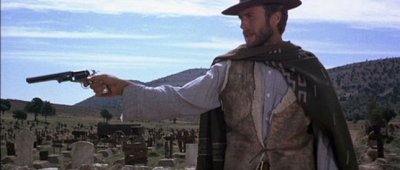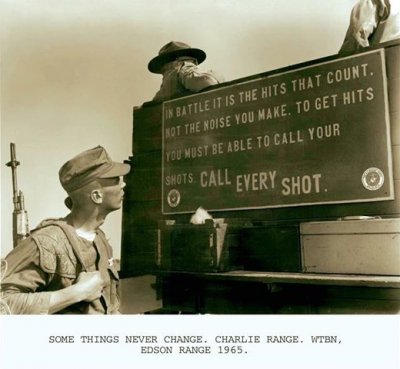Calling your shot is easy: You sight the gun, you press the trigger, and the very last thing you saw (coupled with a little introspection on what you felt) tells you where that shot went.
You know the shot went left because you saw the sights drift left at ignition. You know the shot was low and left because you know you slapped at the trigger. You slapped at the trigger because the sights looked perfect for a moment and you wanted the gun to go bang at that exact moment. You know the shot went low because you saw and felt something which tells you the gun was aimed low when the shot occurred.
Initially shot calling can begin with either "feel"/introspection or with clearly seeing the sights change orientation, but I suspect that more people "feel" the difference between good shots and poorer shots long before they see the bad shot.
I share with students of The Deadeye Method that there are stages to learning to call their shots.
At the beginning they can't tell there was any difference. They are too new and too inexperienced. The good news is that it takes very little time shooting properly to notice that some shots felt different. That is the first rung up off the ground.
Having learned to shoot properly and executing just a few dozen properly fired shots you shank one. It felt different. As soon as the shot happened you knew the shot was different. You may not be able to put words to how or why it was different but you "knew" it was different. Good. Work on being open to what was different- open to what you felt and saw. When you do, you will start being able to describe the difference between the good shots and the errant.
The next rung is being able to accurate describe what was different about those shots. "I anticipated recoil so I pushed the gun before any energy was present and I saw the front sight drop," is an example of both describing a feel and a sight allowing you to call the shot. When this happens you should recognize that you are not separate from the shooting. The shooter does the shooting, not his finger. An anticipatory push is an act the shooter must own. He is the cause of the good, the bad and the ugly.

As soon as you can perceive the error because you are calling the shot, stop firing bad shots! You do not fire bad shots if you can help it. There is no value in calling a shot bad if it doesn't lead to improvement. The improvement is in not firing bad shots. If you identify (call) yourself about to fire a bad shot, don't do it. Shot calling is self-calling. Interrupt that shot and never fire it. Stop, reset, and fire a good shot instead. At first this may be a significant intervention where you remove your finger from the trigger and lower the gun to a safe position. Later it is little more than shortly interrupting the firing process to remind you of how a proper shot is fired and continuing on to a fundamentally sound shot. When you fire more good shots and less bad shots your shooting improves. [Derrrr] The more you fire good shots the more likely you are to fire good shots- because habits repeat.
Having established a habit of only firing good shots (that is to say firing fundamentally proper shots) your shooting significantly improves. The difference between poor shooters, good shooters, and great shooters is the number and degree of their errant shots. With regular practice the number or errant shots and the degree they are errant both decrease. Eventually, you will cease firing errant shots and only a degree of perfection remains.
Shot calling is self-calling. The shooting does not happen absent your actions or your emotions. When you learn to call a shot you learn to call your behavior and mental state. The more you discipline your shooting the more you have disciplined yourself.
Last edited:







